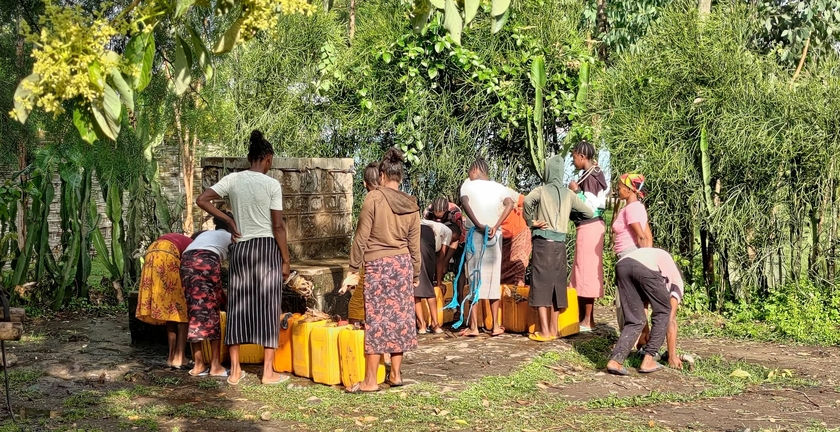Department Sanitation, Water and Solid Waste for Development
In-line chlorination using electrolysis in Sidama, Ethiopia - evaluating the impact on water quality and child health
In 2020, 2 billion people still lacked safely managed drinking water particularly in low-income regions. Even if treated water is provided at the point of distribution, water may be recontaminated during transport and storage. Chlorination interventions can protect the water through providing residual disinfection and reduce consumers’ health risks. Treatment approaches using in-line chlorination appear promising as previous efforts to promote individual chlorination at the point of consumption have been challenged by the need to establish the corresponding behavior change.
In remote areas however, reliable access to a regular supply of chlorine is difficult. In collaboration with the Ethiopian Public Health Institute (EPHI) and a start-up company, we are therefore conducting a study to evaluate an in-line chlorination device that uses electrolysis to produce chlorine on-site using water and salt.
The objectives of the study are:
- to assess handling, operation, and technical performance of 3 Clara devices installed in rural communities;
- to analyze the impact of Clara on water quality at the point of collection as well as at the point of consumption;
- to determine the burden of water-borne diseases (diarrhea, anthropometry, and clinical signs of malnutrition) among children before and after the intervention.

